Filter by
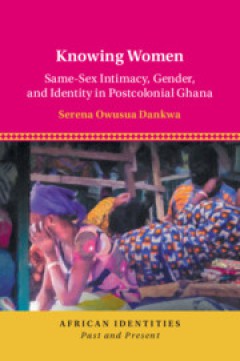
Knowing Women :Same-Sex Intimacy, Gender, and Identity in Postcolonial Ghana
Knowing Women is a study of same-sex desire in West Africa, which explores the lives and friendships of working-class women in southern Ghana who are intimately involved with each other. Based on in-depth research of the life histories of women in the region, Serena O. Dankwa highlights the vibrancy of everyday same-sex intimacies that have not been captured in a globally pervasive language of …
- Edition
- -
- ISBN/ISSN
- 9781108863575
- Collation
- ix, 332 p ; ill
- Series Title
- -
- Call Number
- 306.766309667 KNO S
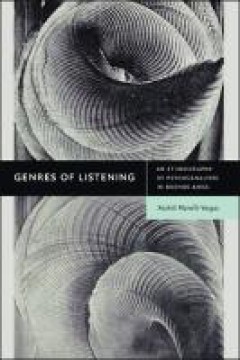
Genres of listening :an ethnography of psychoanalysis in Buenos Aires
Xochitl Marsilli-Vargas explains how psychoanalytic listening practices have expanded beyond the clinical setting to influence everyday social interactions in Buenos Aires.
- Edition
- -
- ISBN/ISSN
- 9781478092698
- Collation
- ix, 249p.
- Series Title
- -
- Call Number
- 153.733 GEN m
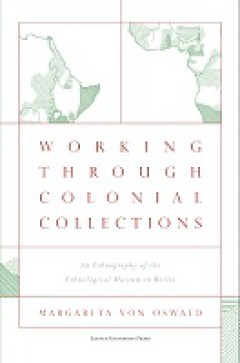
WORKING THROUGH COLONIAL COLLECTIONS :an ethnography of the ethnological muse…
Reckoning with colonial legacies in Western museum collections What are the possibilities and limits of engaging with colonialism in ethnological museums? This book addresses this question from within the Africa department of the Ethnological Museum in Berlin. It captures the Museum at a moment of substantial transformation, as it prepared the move of its exhibition to the Humboldt Forum, a new…
- Edition
- -
- ISBN/ISSN
- 9789462703100
- Collation
- 321p.; ill.
- Series Title
- -
- Call Number
- 301 WOR v
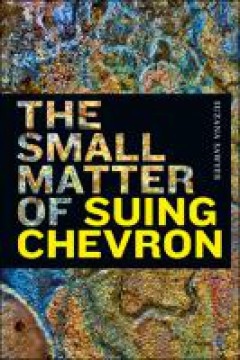
The small matter of suing Chevron
Suzana Sawyer traces Ecuador’s lawsuit against the Chevron corporation for the environmental devastation resulting from its oil drilling practices, showing how distinct legal truths were relationally composed of, with, and through crude oil.
- Edition
- -
- ISBN/ISSN
- 9781478092612
- Collation
- xiii, 417p.; ill.
- Series Title
- -
- Call Number
- 305.563309 SMA s
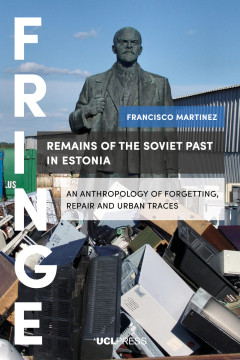
Remains of the Soviet past in Estonia :an anthropology of forgetting, repair …
What happens to legacies that do not find any continuation? In Estonia, a new generation that does not remember the socialist era and is open to global influences has grown up. As a result, the impact of the Soviet memory in people’s conventional values is losing its effective power, opening new opportunities for repair and revaluation of the past. Francisco Martinez brings together a numb…
- Edition
- -
- ISBN/ISSN
- 9781787353534
- Collation
- xix, 255 p. ill;
- Series Title
- -
- Call Number
- 974.98 REM F
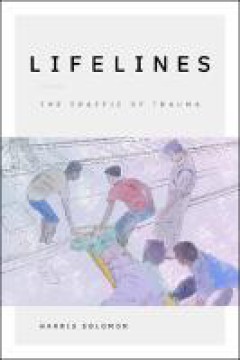
Lifelines :the traffic of trauma
Harris Solomon takes readers into the trauma ward of one of Mumbai’s busiest public hospitals, narrating the stories of the patients, providers, families, and frontline workers who experience and treat traumatic injury from traffic .
- Edition
- -
- ISBN/ISSN
- 9781478092728
- Collation
- xi, 305p.; ill.
- Series Title
- -
- Call Number
- 363.125650954792 LIF s
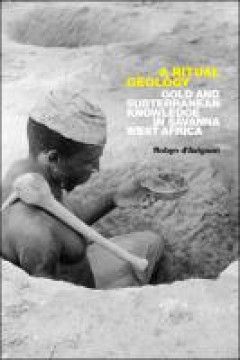
A ritual geology :gold and subterranean knowledge in Savannah West Africa
Robyn d’Avignon tells the history of West Africa’s centuries-old indigenous gold mining industries and its shared practices, prohibitions, and cosmological engagements.
- Edition
- -
- ISBN/ISSN
- 9781478092674
- Collation
- xvii, 329p.; ill.
- Series Title
- -
- Call Number
- 338.2741096 RIT d
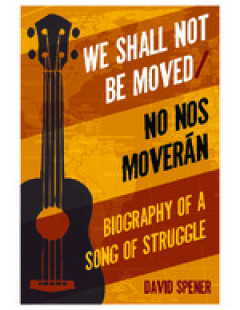
We Shall Not Be Moved: The Trail Blazed by a Song from the U.S. South to Spain and South America details the history of "We Shall Not Be Moved" from its birth as a slave spiritual in the U.S. South and its subsequent adoption as a standard hymn by the U.S. labor, civil rights, and farmworker movements, to its singing in the student movement opposing the Franco dictatorship in Spain in the 1960s…
- Edition
- -
- ISBN/ISSN
- 9781439912997
- Collation
- Knowledge Unlatched (KU)
- Series Title
- -
- Call Number
- -
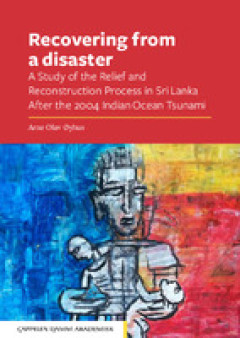
Recovering From a Disaster; A study of The Relief And Reconstruction Process …
On 26 December 2004 at 6.58 hours (Sri Lanka Time), a massive earthquake with its epicentre outside the coast of Sumatra generated a series of gigantic waves, tsunamis. At 8.35 hours the waves reached the eastern and southern coastline of Sri Lanka, crushing hundreds of villages and towns, killing and maiming tens of thousands of people within seconds. When the waves pulled back, and the ocean …
- Edition
- -
- ISBN/ISSN
- -
- Collation
- -
- Series Title
- -
- Call Number
- -
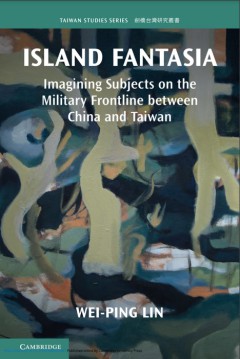
Island fantasia :imagining subjects on the military frontline between China a…
The Matsu archipelago between China and Taiwan, for long an isolated outpost off southeast China, was suddenly transformed into a military frontline in 1949 by the Cold War and the Communist-Nationalist conflict. The army occupied the islands, commencing more than 40 long years of military rule. With the lifting of martial law in 1992, the people were confronted with the question of how to move…
- Edition
- -
- ISBN/ISSN
- 9781009023481
- Collation
- xviii; 310p; ill.
- Series Title
- -
- Call Number
- 951.249 ISL W

Encoding race, encoding class :Indian IT workers in Berlin
In Encoding Race, Encoding Class Sareeta Amrute explores the work and private lives of highly skilled Indian IT coders in Berlin to reveal the oft-obscured realities of the embodied, raced, and classed nature of cognitive labor. In addition to conducting fieldwork and interviews in IT offices as well as analyzing political cartoons, advertisements, and reports on white-collar work, Amrute spent…
- Edition
- -
- ISBN/ISSN
- 9780822361176
- Collation
- ix, 280p.; ill.
- Series Title
- -
- Call Number
- 331.6254043155 ENC a

Crowds; ethnographic encounters
- Edition
- -
- ISBN/ISSN
- 9781350002340
- Collation
- xiv; 216 PG; ill.
- Series Title
- -
- Call Number
- -
- Edition
- -
- ISBN/ISSN
- 9781350002340
- Collation
- xiv; 216 PG; ill.
- Series Title
- -
- Call Number
- -
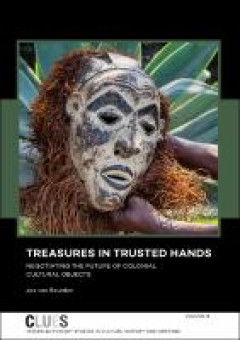
Treasures in Trusted Hands :Negotiating the Future of Colonial Cultural Objects
This pioneering study charts the one-way traffic of cultural and historical objects during five centuries of European colonialism. It presents abundant examples of disappeared colonial objects and systematises these into war booty, confiscations by missionaries and contestable acquisitions by private persons and other categories. Former colonies consider this as a historical injustice that has …
- Edition
- -
- ISBN/ISSN
- 9789088904417
- Collation
- 290 p. : ill
- Series Title
- -
- Call Number
- 301 JOS t
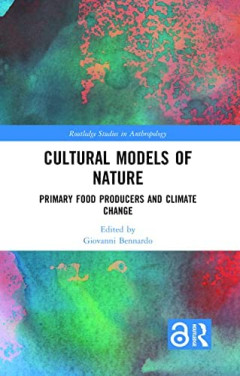
Cultural models of nature
Drawing on the ethnographic experience of the contributors, this volume explores the Cultural Models of Nature found in a range of food-producing communities located in climate-change affected areas. These Cultural Models represent specific organizations of the etic categories underlying the concept of Nature (i.e. plants, animals, the physical environment, the weather, humans, and the supernat…
- Edition
- -
- ISBN/ISSN
- 9781351127905
- Collation
- 394p. : ill.
- Series Title
- -
- Call Number
- 338.19 CUL c
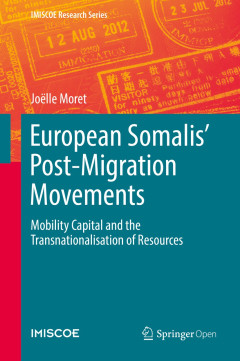
European somalis' post-migration movements:mobility capital and the transnati…
Based on a qualitative study on migrants of Somali origin who have settled in Europe for at least a decade, this open access book offers a ground-breaking exploration of the idea of mobility, both empirically and theoretically. It draws a comprehensive typology of the varied “post-migration mobility practices” developed by these migrants from their country of residence after having settled …
- Edition
- -
- ISBN/ISSN
- 9783319956602
- Collation
- ix, 208p. :
- Series Title
- -
- Call Number
- 304.8 JOE e
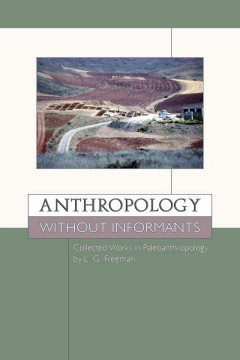
Anthropology without informants :collected works in paleoanthropology
"It is my sincere hope that this volume will be much read and reflected upon by new generations of American students of prehistoric archaeologists. Freeman's career is a model for long-term international collaboration, theoretical eclecticism, the centrality of field research, and the ability to 'dream big,' but with a commonsense approach to the record and its limitations." Lawrence Guy Straus…
- Edition
- -
- ISBN/ISSN
- 9781607327066
- Collation
- 376p. : ill
- Series Title
- -
- Call Number
- 936.6 FRE a
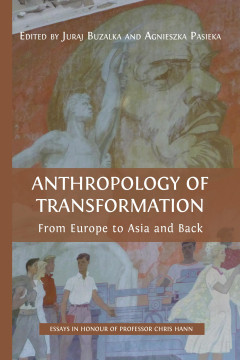
Anthropology of Transformation From Europe to Asia and Back
This collection of essays is the result of the joint efforts of colleagues and students of the leading social anthropology and post-socialism theorist, Professor Chris Hann. With the thirtieth anniversary of the collapse of the Berlin Wall in 2019 as their catalyst, the authors reflect upon Chris Hann’s lifelong fieldwork in the discipline, spanning regions as diverse as East Central Europe, …
- Edition
- -
- ISBN/ISSN
- 9781800643642
- Collation
- xiii, 282p. : ill
- Series Title
- -
- Call Number
- 301 ANT a
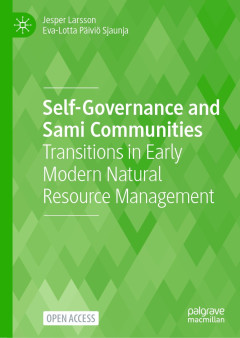
Self-governance and sami communities :Transitions in Early Modern Natural Res…
This open access book uses an interdisciplinary approach that not only focuses on social organization but also analyzes how societies and ecological settings were interwoven. How did early modern indigenous Sami inhabitants in interior northwest Fennoscandia build institutions for governance of natural resources? The book answers this question by exploring how they made decisions regarding natu…
- Edition
- -
- ISBN/ISSN
- 9783030874988
- Collation
- xvi; 247 PG; ill.
- Series Title
- -
- Call Number
- 333.70899457 SEL s
 Computer Science, Information & General Works
Computer Science, Information & General Works  Philosophy & Psychology
Philosophy & Psychology  Religion
Religion  Social Sciences
Social Sciences  Language
Language  Pure Science
Pure Science  Applied Sciences
Applied Sciences  Art & Recreation
Art & Recreation  Literature
Literature  History & Geography
History & Geography